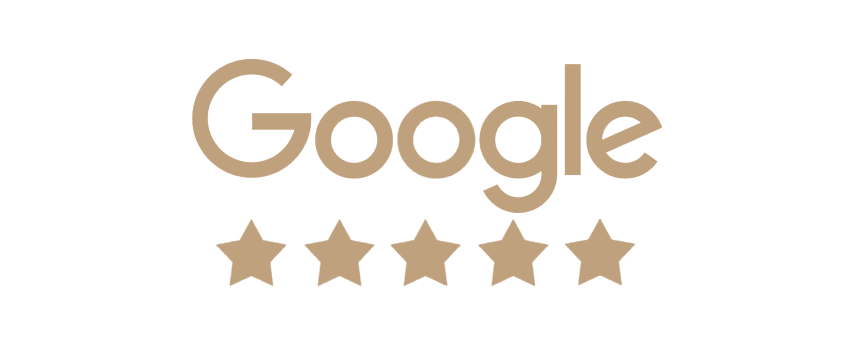
Self-Employed Mortgages
Self-Employed? A Self-Employed Mortgage Makes Home Loans Possible Without Traditional Income
David Pipe, Mortgage Broker
David provides clients with tailored advice on mortgages, life insurance and investments. He offers a holistic approach to mortgages, investing and wealth-building.
Unlock Homeownership With A Mortgage Designed For Self-Employed Professionals And Business Owners
Being your own boss has countless advantages—flexibility, control, and the ability to shape your business as you see fit.
However, when it comes to securing a mortgage, the process can feel far from flexible.
Traditional lenders tend to favor steady, predictable income, which can make it difficult for self-employed individuals to qualify for a loan.
That's where a self-employed mortgage comes in, offering a solution tailored for business owners, freelancers, and contractors looking to purchase or refinance a home.
I’m David Pipe, and I specialize in helping self-employed Canadians navigate the unique challenges of securing a mortgage.
Whether you're looking to buy your first home or refinance an existing one, I’m here to guide you through the process with tailored solutions that work for your specific situation.
Let’s make homeownership a reality on your terms.
The Challenge: Why It’s Harder for Self-Employed Borrowers
Traditional mortgage applications rely heavily on proof of consistent income, typically in the form of T4 slips and employment letters.
But if you're self-employed, your income may fluctuate, and tax deductions can make it appear lower on paper than it actually is.
Lenders view this as riskier, meaning you may face higher scrutiny, stricter qualifications, and potentially higher interest rates.
However, that doesn’t mean getting a mortgage is impossible. With the right approach and an experienced mortgage professional, you can secure the financing you need.
The Solution: Self-Employed Mortgages
Self-employed mortgage programs are tailored to recognize your unique financial situation.
These loans allow for alternative income verification, making it easier to qualify even if your tax returns don’t fully reflect your earnings.
Whether you’re a sole proprietor, incorporated business owner, or gig worker, there are mortgage solutions designed for you.
Key Features of a Self-Employed Mortgage:
✅ Alternative Income Verification: Use bank statements, business financials, or accountant-prepared reports instead of traditional tax documents.
✅ Flexible Lending Options: Choose from traditional lenders, B-lenders, and private lenders who specialize in self-employed clients.
✅ Competitive Rates: Depending on your credit and financials, you may still qualify for low mortgage rates similar to salaried employees.
✅ Higher Debt Ratios Allowed: Some lenders offer more flexibility on debt-to-income ratios, understanding that self-employed income varies.
✅ Access to Home Equity: If you already own a home, refinancing with a self-employed mortgage can help unlock cash for business expansion, debt consolidation, or personal investments.
Who Qualifies for a Self-Employed Mortgage?
If you fall into any of these categories, a self-employed mortgage could be right for you:
🔹 Sole proprietors
🔹 Incorporated business owners
🔹 Freelancers and independent contractors
🔹 Commission-based professionals (realtors, sales agents, consultants)
🔹 Gig economy workers (Uber drivers, content creators, influencers)
🔹 Seasonal workers with fluctuating income
Even if you have been self-employed for only a short period, there are mortgage options available that consider your income potential rather than just past earnings.
Documentation: What You’ll Need
To improve your chances of getting approved for a self-employed mortgage, having the right documentation is key. Here’s what lenders typically look for:
✔️ Proof of self-employment (business license, articles of incorporation, GST/HST registration)
✔️ Personal and business bank statements (typically 6-12 months)
✔️ Notices of Assessment (NOAs) from the last two years
✔️ Financial statements prepared by an accountant (profit & loss statements)
✔️ Contracts or invoices showing consistent income
✔️ Credit score and history
Why Trust David Pipe With Your Self-Employed Mortgage?
Here’s why self-employed Canadians confidently choose me to help secure their home financing:
✔️ Clear, Transparent, and Expert Guidance
I simplify the mortgage process, clearly explaining all the options available to you. You’ll feel confident and informed at every stage.
✔️ Access to Leading Canadian Lenders for Self-Employed Mortgages
Thanks to my relationships with top Canadian lenders, I’ll negotiate on your behalf to secure the best terms, tailored to your unique income structure.
✔️ Customized Solutions for Your Self-Employed Situation
No two self-employed individuals are the same. I create personalized mortgage plans that align with your business income, financial goals, and future needs.
✔️ Supportive, Judgment-Free Advice
I understand that being self-employed can present challenges. I’m here to offer non-judgmental support and help you find the best solution for your homeownership needs.
Get To Know Us
See why people love working with WealthTrack
Use this calculator to estimate the annual income required to qualify for the mortgage.
This tool also calculates the required monthly payments and displays the amortization schedule in a chart.
The Self-Employed Mortgage Review Process
-

1. Get to Know You
Fill out a quick form right now. We’ll ask a few questions and get a sense of where you're at.
-

2. Match Lender Programs
We find lenders who accept bank statements or flexible documentation.
-

3. You Get The Facts
You receive options that suit your income type and maximize your borrowing power.
How to Improve Your Chances of Mortgage Approval
If you’re self-employed, here are some ways to strengthen your mortgage application:
Keep Business & Personal Finances Separate: Having clear financial records makes it easier to show income.
Reduce Tax Deductions (Temporarily): While writing off expenses reduces taxable income, it can also make your earnings appear lower to lenders.
Improve Your Credit Score: A higher credit score can lead to better rates and easier approval.
Work with a Mortgage Broker: A specialist in self-employed mortgages can connect you with lenders who understand your situation.
Save for a Larger Down Payment: A bigger down payment can offset lender concerns about income stability.
Traditional vs. Alternative Lenders for Self-Employed Mortgages
While major banks have strict lending guidelines, alternative lenders and private lenders offer more flexible options. Understanding the difference can help you make an informed choice.
Traditional Lenders (Big Banks):
✔️ Lower interest rates
✔️ Strict income verification (require full tax documents)
✔️ Harder to qualify if your declared income is low
Alternative Lenders (B-Lenders, Credit Unions):
✔️ More flexible income verification (use bank statements, accountant-prepared reports)
✔️ Competitive interest rates (slightly higher than traditional banks)
✔️ Easier qualification process for self-employed borrowers
Private Lenders:
✔️ No need for tax returns or extensive financial documents
✔️ Fast approvals, ideal for short-term financing
✔️ Higher interest rates and fees
Common Questions about Self-Employed Mortgages
-
It can be, but with good records and steady income, it's very possible.
-
Yes. Strong credit can improve your approval odds and help you secure a better rate.
-
Definitely. A broker can connect you with lenders who specialize in self-employed clients.
Take the First Step Today
Securing a mortgage as a self-employed individual doesn’t have to be difficult.
With the right guidance and access to flexible lending options, you can achieve homeownership or refinance your property with confidence.
Let’s get started.
Your success as a business owner shouldn’t stand in the way of your homeownership dreams—let’s make them a reality together.
Our Clients Tell Us:







